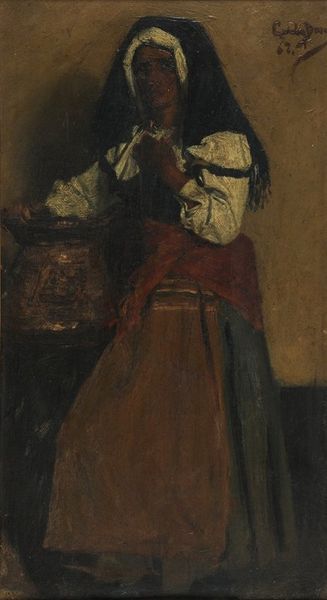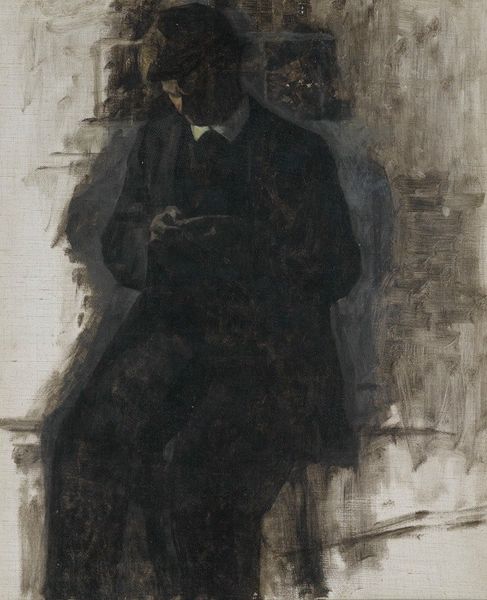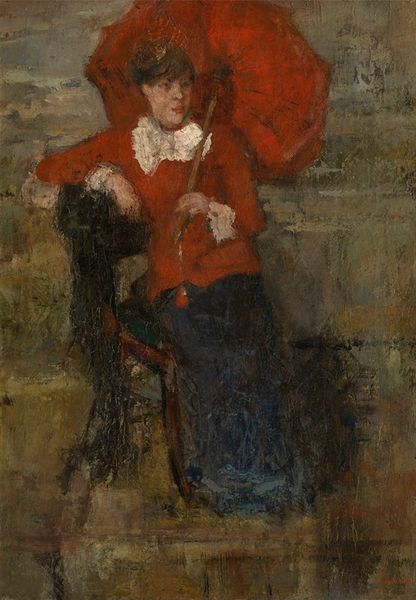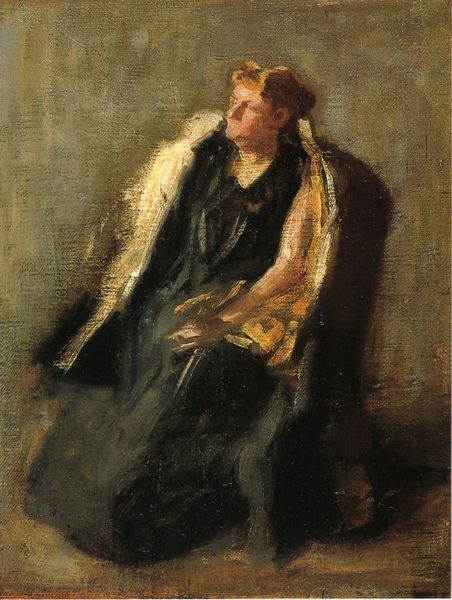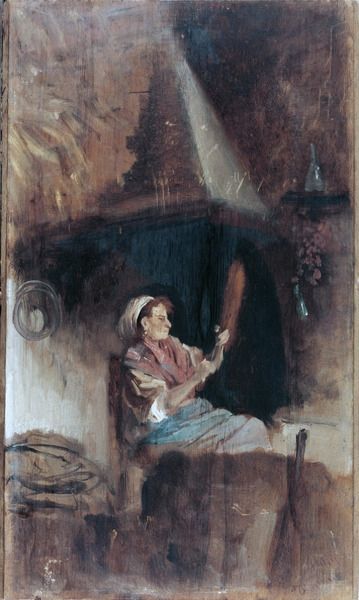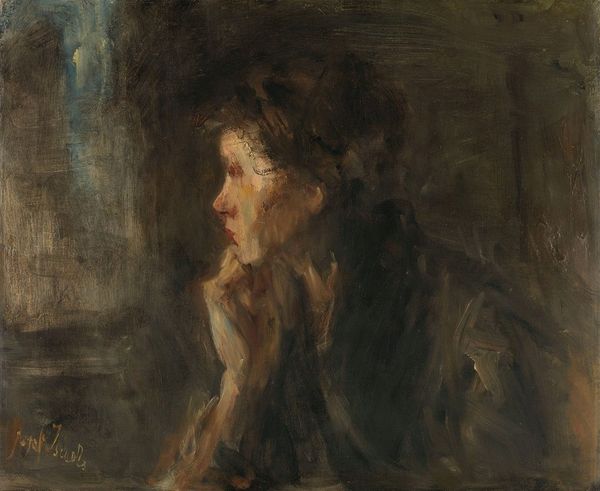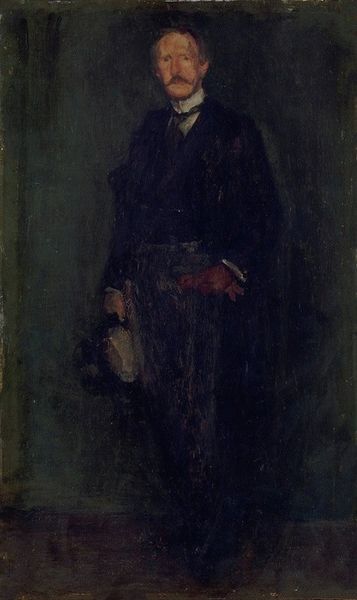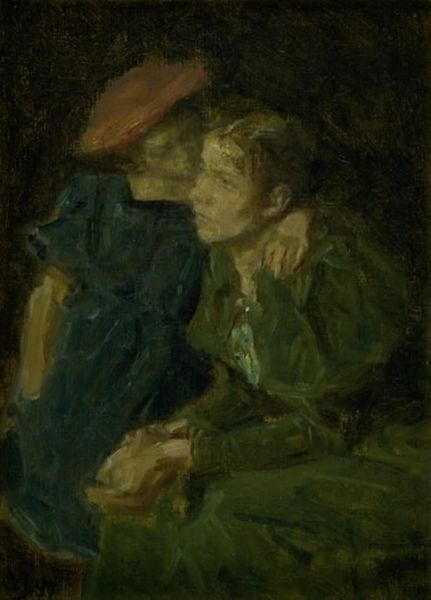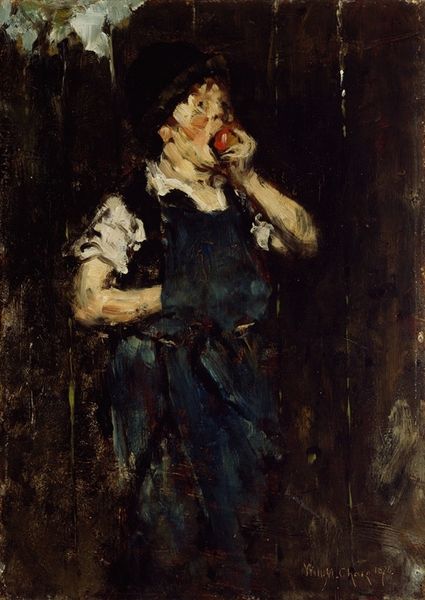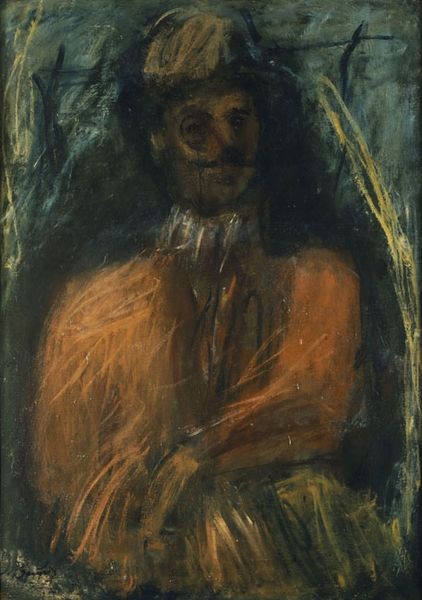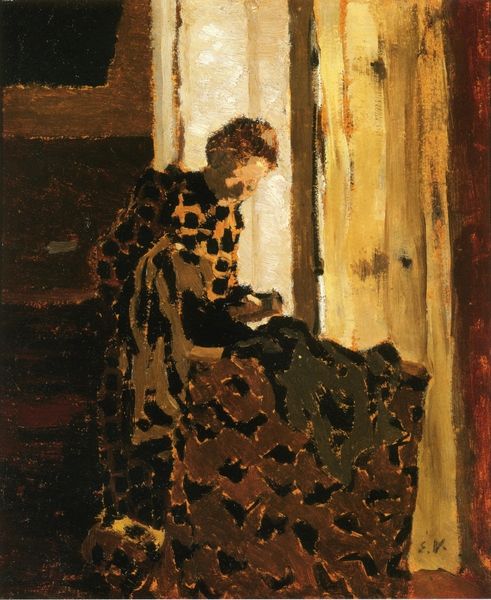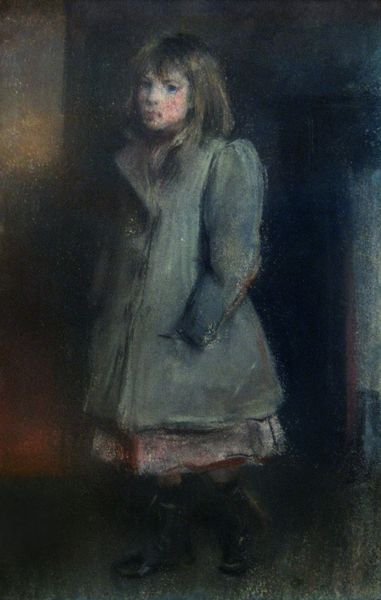
#
figurative
#
abstract painting
#
charcoal drawing
#
possibly oil pastel
#
oil painting
#
acrylic on canvas
#
underpainting
#
painting painterly
#
portrait drawing
#
portrait art
#
watercolor
Copyright: Public Domain: Artvee
Editor: So here we have Degas’ “Femme assise sur un canapé,” created sometime between 1868 and 1872. It strikes me as remarkably informal, even unfinished. How do you interpret this piece? Curator: What’s fascinating is the context. During this period, the French Academy heavily influenced art, promoting highly polished, idealized portraits. Degas, while trained in that tradition, increasingly challenged it. How does this informality relate to the public role of art at the time? Editor: It feels like a deliberate rejection. The loose brushwork, the almost muddy palette… it's not trying to flatter. Curator: Precisely. This work isn't about capturing an ideal, but perhaps something more truthful, even psychological. Consider the pose. She seems to almost melt into the sofa, hinting at a certain weariness. Do you see that reflecting larger shifts in societal expectations or portrayals of women at the time? Editor: It does feel less performative than many portraits from that era. I'm guessing this was fairly radical in its day. Curator: Radically honest, perhaps. Degas pushes against the prevailing notions of beauty and propriety that shaped public art and challenged who got to be seen, and how. We see the individual, not just the ideal. This makes the painting relevant for future generations, to challenge and reconsider established norms in their own eras. Editor: That gives me a new appreciation for its boldness. I went in thinking it was simply unfinished, now I see its purpose more clearly. Curator: Exactly. Sometimes, what appears unfinished can be the most revealing. It certainly gives you much to consider about what artists push for within specific movements and in societies generally.
Comments
No comments
Be the first to comment and join the conversation on the ultimate creative platform.
